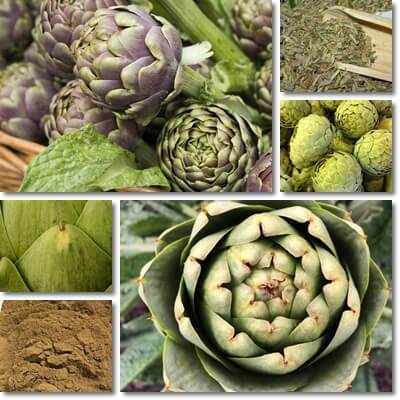Do you have high blood cholesterol levels? Are you looking for natural solutions and remedies for lowering your cholesterol? Both artichoke, the vegetable, and artichoke extract made from artichoke leaves and other plant parts have some degree of benefits for lowering cholesterol, and they’re scientifically proven. Discover what are the biologically active compounds in artichoke and artichoke leaf extract and what makes them good for lowering high cholesterol levels.
Artichoke for high cholesterol: is it enough?
Artichoke is good for high cholesterol and can actively help with lowering levels for better heart and vascular health. However, a plant or plant extract having certain bioactive properties, that is, producing a somewhat measurable effect on a living tissue/being, albeit scientifically proven, does not mean said plant or plant extract will reverse a medical condition completely or improve it to the extent conventi0nal treatment is not needed, or undo a bad lifestyle or diet.
For something such as high blood cholesterol levels, a multidisciplinary effort such as dietary changes that favor a healthy blood lipid profile, exercise to lose weight and reach and maintain healthy weight, and other measures such as other supplements that helps lower cholesterol (e.g. vitamin C, B vitamins such as vitamin B3) are still required in addition to eating artichoke or taking artichoke leaf extract.

Artichoke as food for high cholesterol
How is artichoke good for high cholesterol levels? Here is how eating artichoke, the vegetable, is good for lowering high cholesterol levels:
Via a high dietary fiber content
Artichokes are good for lowering cholesterol levels because they are high in dietary fiber. A serving of 100 g of artichoke provides on average of 8.6 g of dietary fiber. Fiber is somewhat of an anti-nutrient and binds to and blocks absorption of fats from food at the intestinal level (to a certain extent), indirectly contributing to lowering cholesterol levels.
Via inulin
Inulin in artichokes has cholesterol lowering properties. Inulin is basically a type of soluble dietary fiber found in some foods, including artichoke, Jerusalem artichoke, bananas, jicama, burdock root, chicory root, dandelion root, garlic and onions. Inulin is resistant to digestion, as are other types of dietary fiber. Research shows inulin actively contributes to lowering LDL (bad) cholesterol levels as well as triglycerides, and raising HDL (good) cholesterol for a healthier blood lipid profile.
Via prebiotic properties
Artichoke contains dietary fiber with prebiotic properties such as inulin. Inulin does not get digested per se, and instead forms a gel that gets metabolized by beneficial bacteria in the intestinal tract, feeding and helping grow populations. Research shows a healthy gut environment contributes to achieving and maintaining a healthy weight and reducing BMI, contributing to healthier total cholesterol and LDL cholesterol levels.
Via phenolic compounds
Artichoke contributes to lowering cholesterol levels directly, via specific phenolic compounds with scientifically proven cholesterol lowering properties. Cynarin, luteolin, and other phenolic components occurring naturally in artichoke have been shown to actively contribute to lowering cholesterol levels in the blood, inhibiting cholesterol synthesis by the liver, as well as preventing LDL (bad) cholesterol oxidation (source).

Artichoke extract for high cholesterol
How is artichoke extract good for lowering cholesterol levels? Artichoke extract is a bioactive functional food (source), meaning it has scientifically proven effects on living tissue/beings, including modulating effects on blood lipid profile. Here are all the ways artichoke extract contributes to lowering cholesterol levels:
Modulates the gut environment
Studies show inulin extracted from artichoke has long lasting bifidogenic effects on lactobacilli and bifidobacteria species such as Bifidobacterium bifidum (source 1, source 2). By producing beneficial alterations in gut flora, bioactive ingredients in artichoke leaf extract such as very-long-chain inulin promote and help sustain a healthy weight, as well as contribute to reducing metabolic syndrome markers such as high blood cholesterol, high blood sugar and high blood pressure.
Provides phenolics with antioxidant, cholesterol-lowering, anti-diabetic, anti-obesity properties
There are many supplements that help lower cholesterol, but artichoke extract might just be one of the best. Over 60 biologically active compounds have been identified in globe artichoke (Cynara scolymus), including phenolic acids, lignans, flavonoids etc. Artichoke has one of the highest antioxidant capacities reported for vegetables (source). Cynarin, cynaroside, luteolin, apigenin-7-rutinoside and narirutin, unique to artichoke heads (source) and more naturally occurring antioxidant phenolics contribute to the cholesterol lowering, anti-diabetic and anti-obesity effects of artichoke and artichoke leaf extract.
Artichoke leaf extract is also proven to protect against liver damage, promote regeneration of the hepatic cell and support liver function, the liver being the main regulator of blood lipid profile, with the artichoke receptacle and stem being the main sources of bioactive chemicals with liver and kidney protective effects (source).
Studies show artichoke leaf extract reduces plasma cholesterol in otherwise healthy hypercholesterolemic adults by an average of 4.2% as a result of supplementation with 1280 mg of artichoke leaf extract for 12 weeks (study).
Studies show artichoke leaves extract helps treat metabolic disorders such as diabetes via blood sugar lowering, triglyceride and LDL cholesterol lowering effects paired with antioxidant activities. In an animal study, diabetic rats showed a 37% reduction in LDL cholesterol levels, a 60% reduction in triglyceride levels and an 18% reduction in total cholesterol.
Another way artichoke leaves extract contributes to lowering cholesterol levels is by exerting anti-obesity and antioxidant liver effects. High fat diet-induced obesity in rats was associated with liver dysfunction and an abnormal lipid profile, but artichoke leaf extract showed antihypercholesterolemic, antioxidative and hepatoprotective effects in vivo (study).
Also see the benefits of artichoke tea.
What is artichoke extract made from?
Artichoke extract is a generic name and may refer to a plant extract made exclusively from artichoke leaf material or, in some cases, multiple plant parts (artichoke leaves, stems, hearts), with a higher concentration of select bioactive components from the plant. Artichoke extract is most commonly available as a supplement for lowering cholesterol levels, and may contain dried and finely ground leaves, leaves and other plant parts with biologically active chemicals, typically with a higher concentration of select bioactive phenolics such as cynarin, luteolin and inulin.
